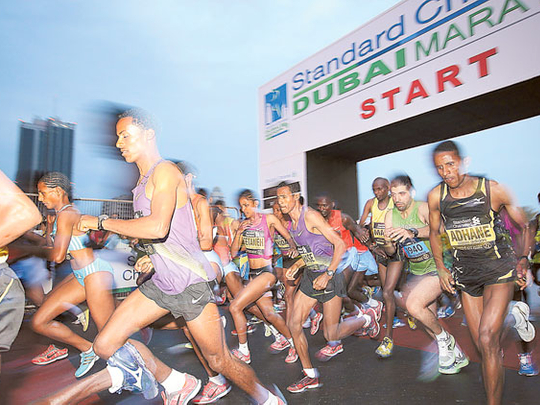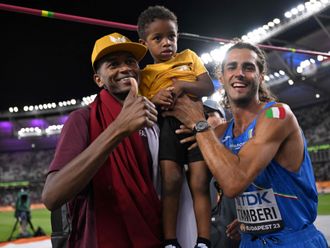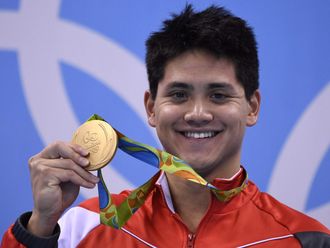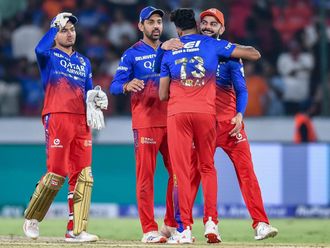
Dubai: When the Dubai Marathon was staged for the first time on November 27, 1998, no one thought that it would one day emerge as one of the UAE’s biggest sporting events and a highlight on the social calendar.
The Standard Chartered Dubai Marathon now enjoys a prominent place on the world’s marathon map, with elite runners flocking to participate in the race.
Ahmad Al Kamali, the General Co-ordinator of the Dubai Marathon and President of the UAE Athletics Federation who has been instrumental in promoting the event from inception, told Gulf News: “We had a goal from our very first marathon to go far ahead and we are happy that we are making our presence felt in world marathon. The first marathon was staged on a very small scale, with only 150 runners taking part and with a prize money of Dh50,000.”
The first marathon was held from outside the Al Wasl Club with the finishing line inside the Al Wasl Stadium. Alan Chilton of England, with a timing of 2:23.08 seconds, won the men’s race and India’s Barbara Young, clocking 3:50.36, won the women’s race.
“Only 48 people finished the race and I felt so happy when, last year, nearly 18,000 completed the race. Every year the course record began to be bettered with elite runners from around the world coming to participate,” recalled Al Kamali.
Within two years of its inception, the fame of the Dubai Marathon began to reach every corner of the world.
By the year 2000, the event established as a must-run for many. Wilson Kibet of Kenya stole the thunder in the first three years in the men’s category.
He won the 2000 marathon with a timing of 2:12.12, retained the title in 2001 in 2:13.36 and clinched a hat-trick of titles in 2002 with 2:13.04. In the women’s Russia’s Ramilja Burangulowa won in 2000 timing 2:40.22 and in 2001 won again in 2:37.07. For two more years Russian women kept winning before Ethiopian and Kenyan runners began to dominate the marathon.
The Dubai Marathon got its biggest shot in the arm when legendary Ethiopia runner Haile Gebrselassie ran in 2008. The presence of Gebrselassie not only attracted the world media but thousands of runners flew in, aiming to compete alongside him. He returned to compete in 2009 and 2010 and shattered the course record.
Top companies lined up to sponsor the event. Standard Chartered Bank became the title sponsors nine years back. The bank also utilised the event to support charitable causes like raising funds to eliminate avoidable blindness.
Today, the event is being contested by almost all the nationalities in UAE.
“Last year we had 135 nationalities contesting and with an increase in the number [registered] for 10km this year, there will be more nationalities. The days when it was confined only to a few nationalities have ended,” remarked Event Director Peter Connerton.












